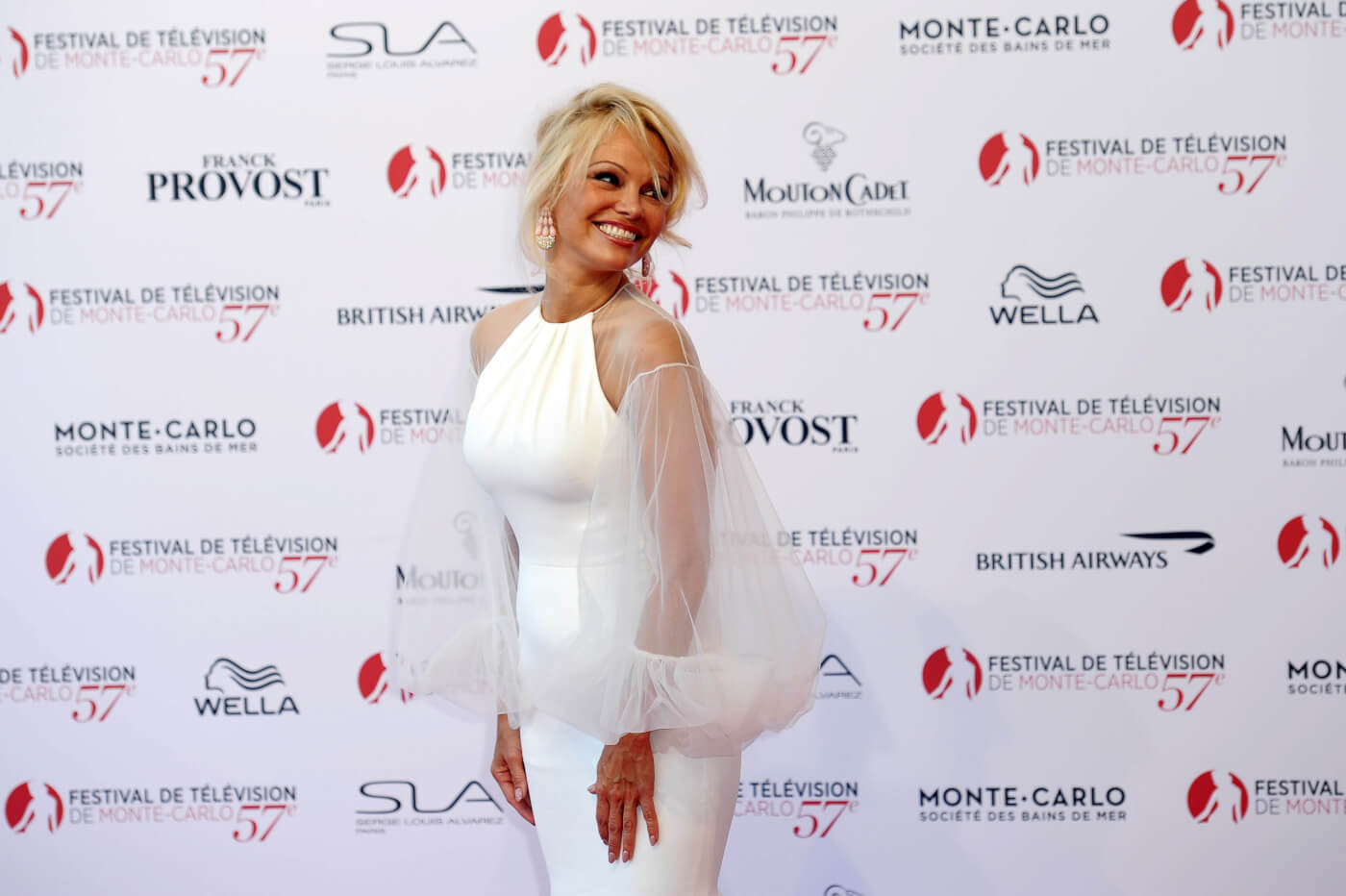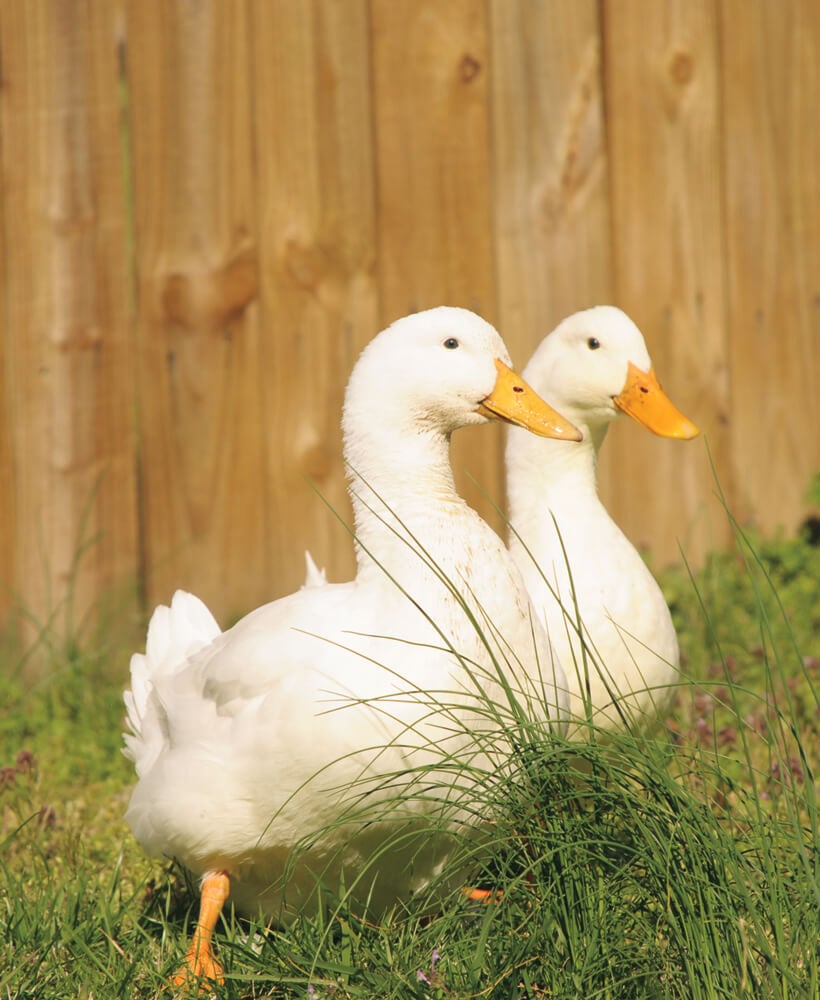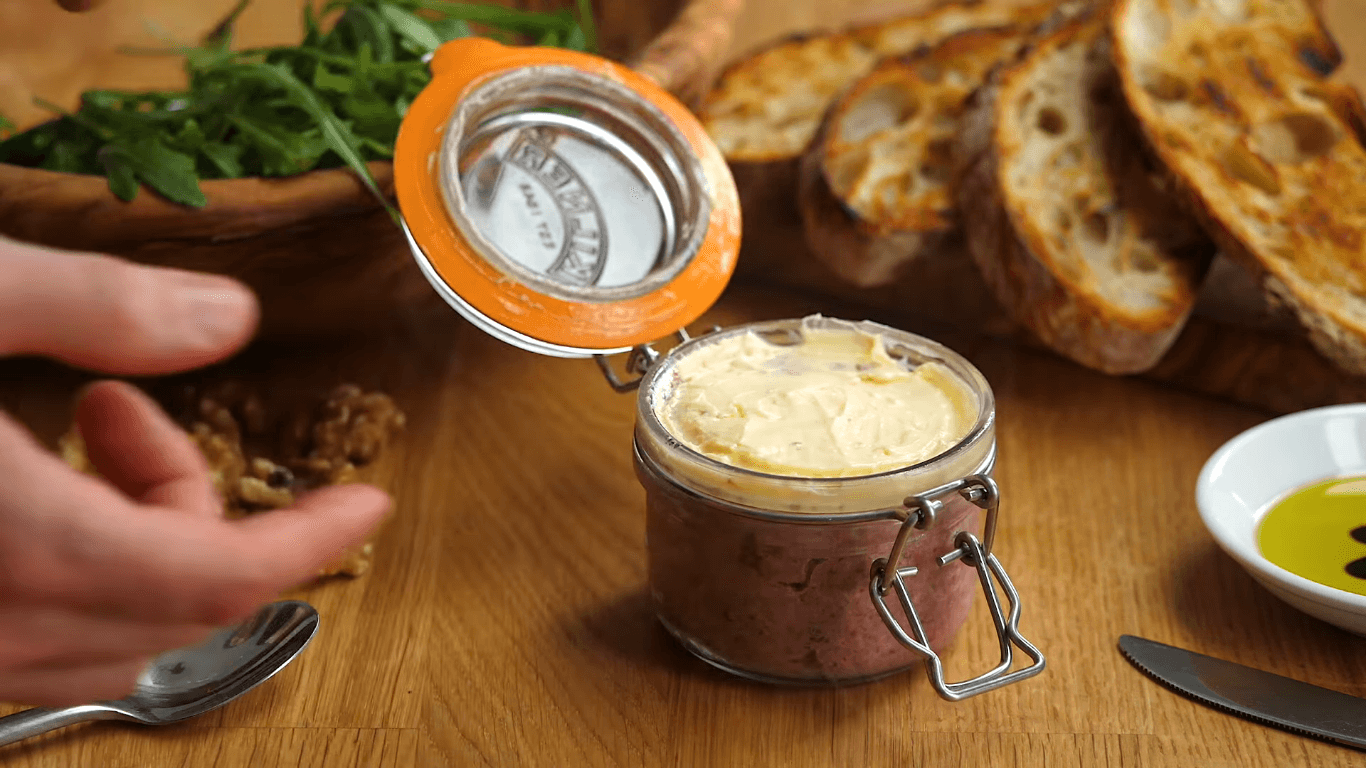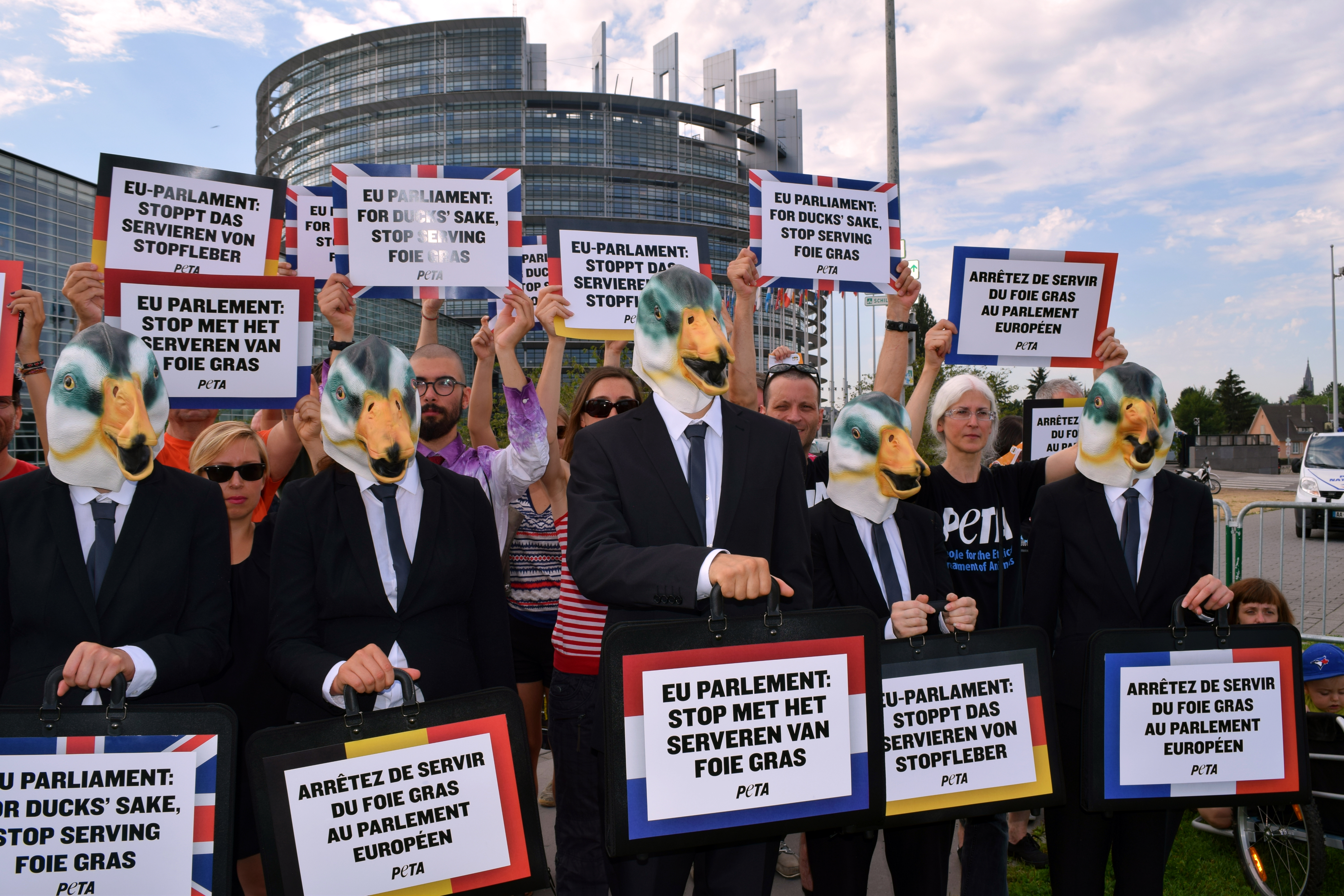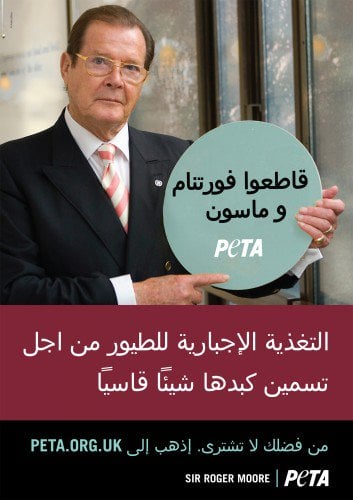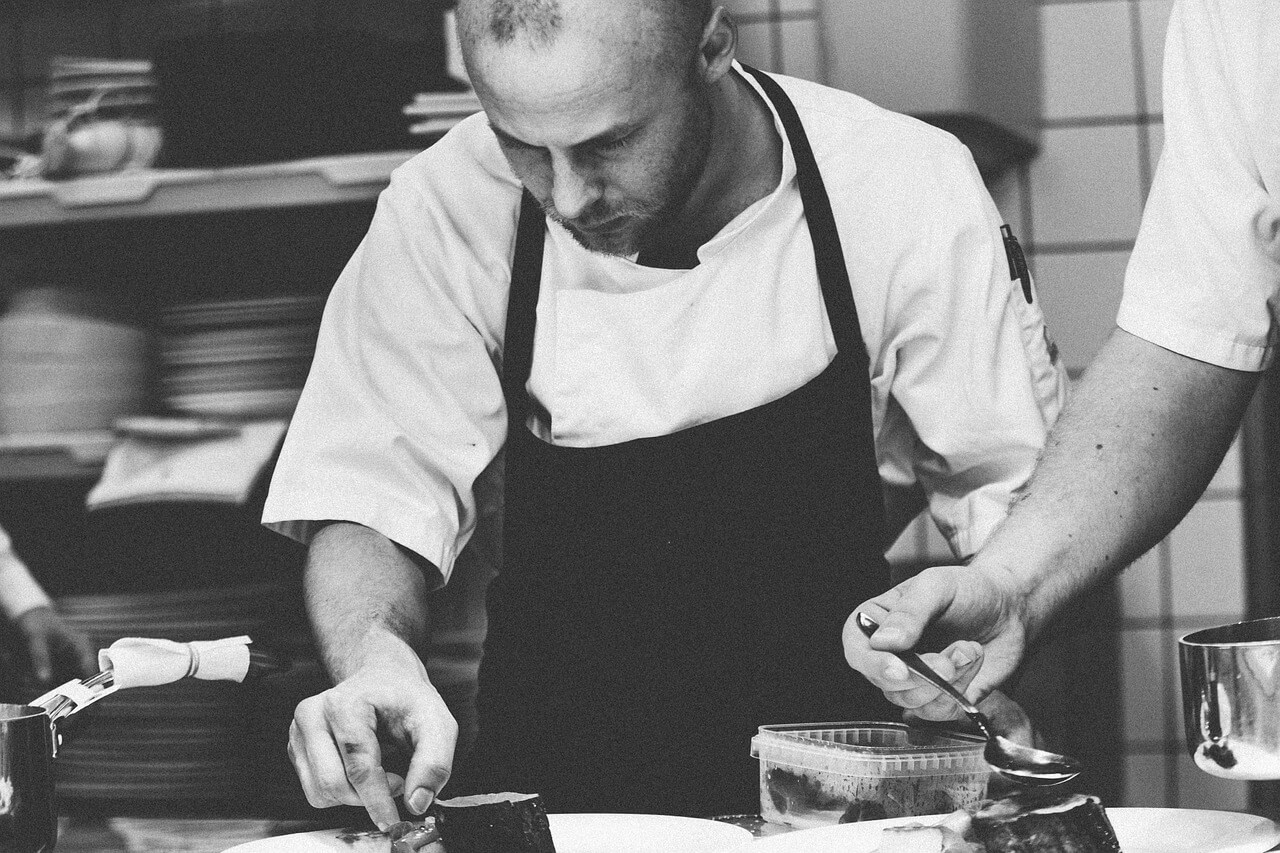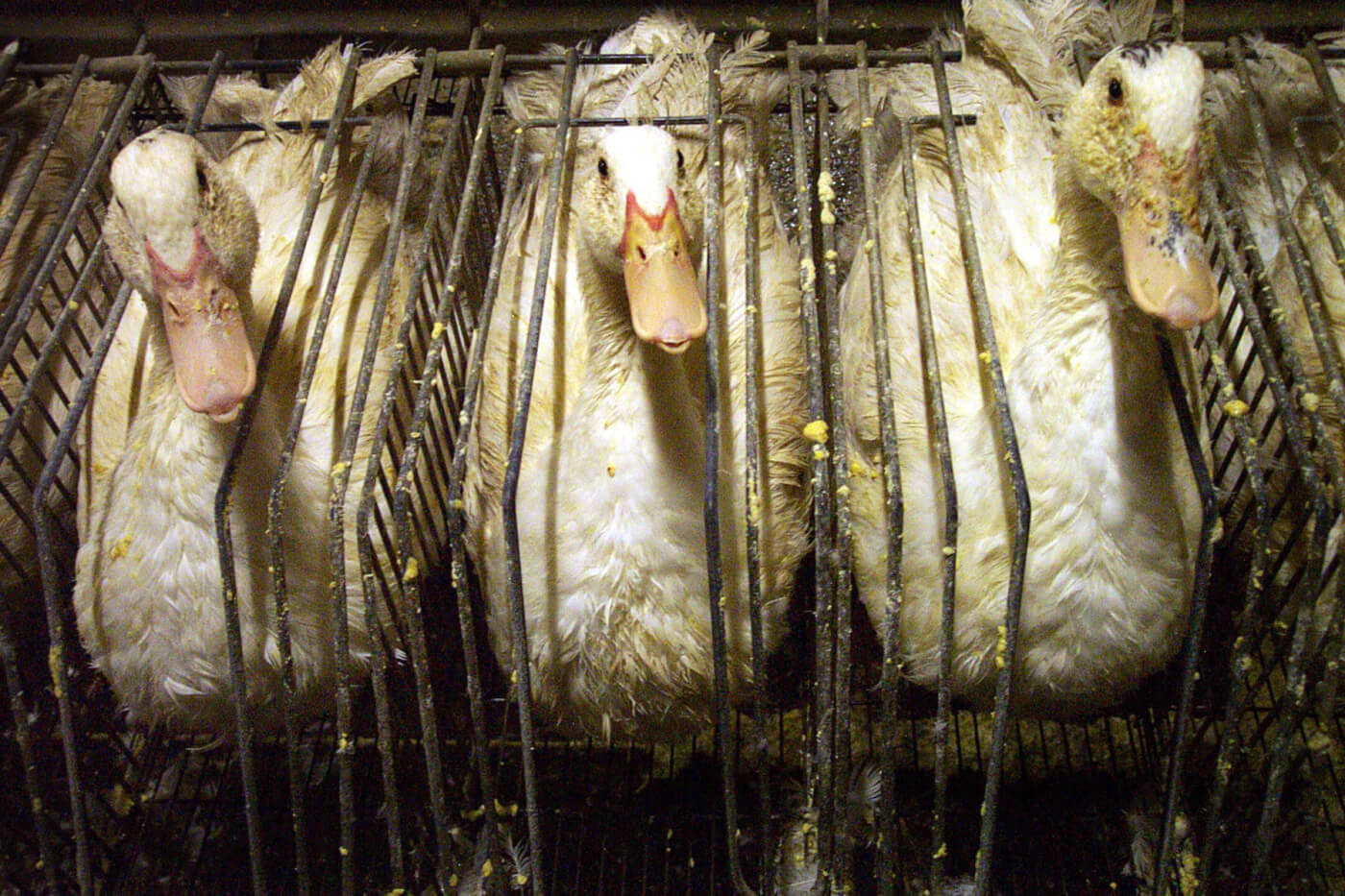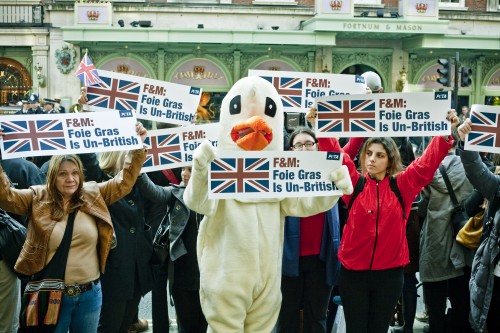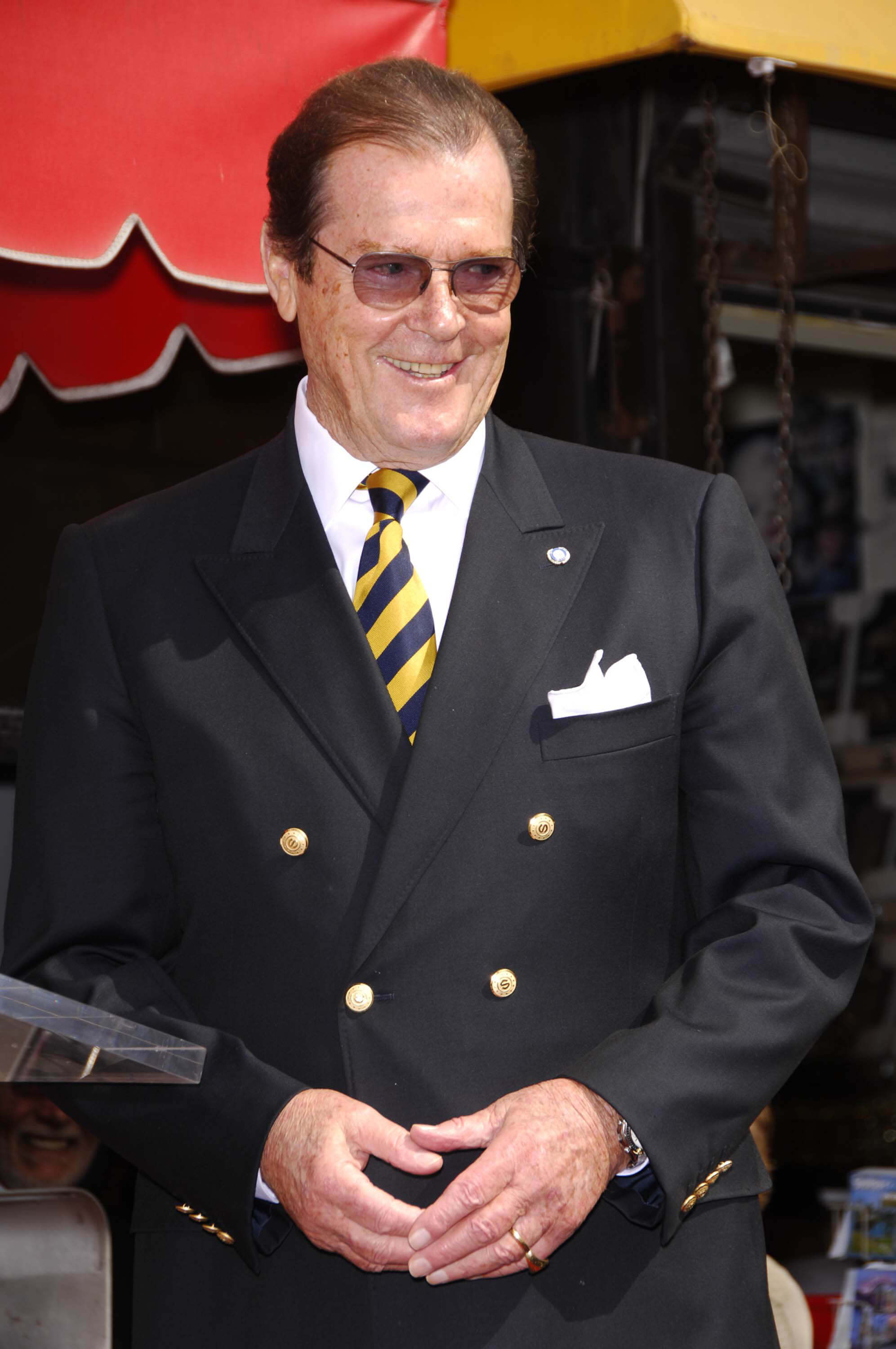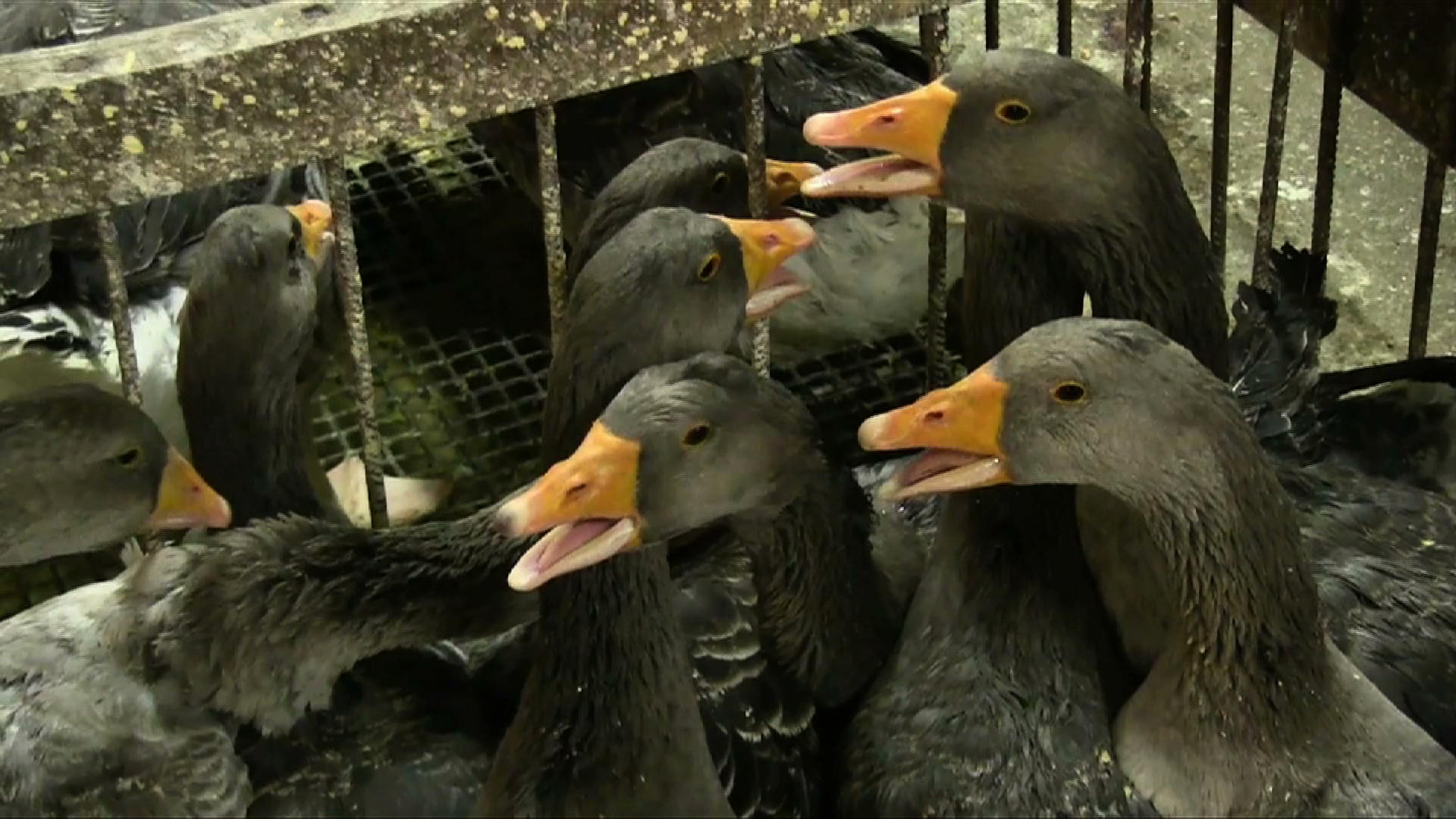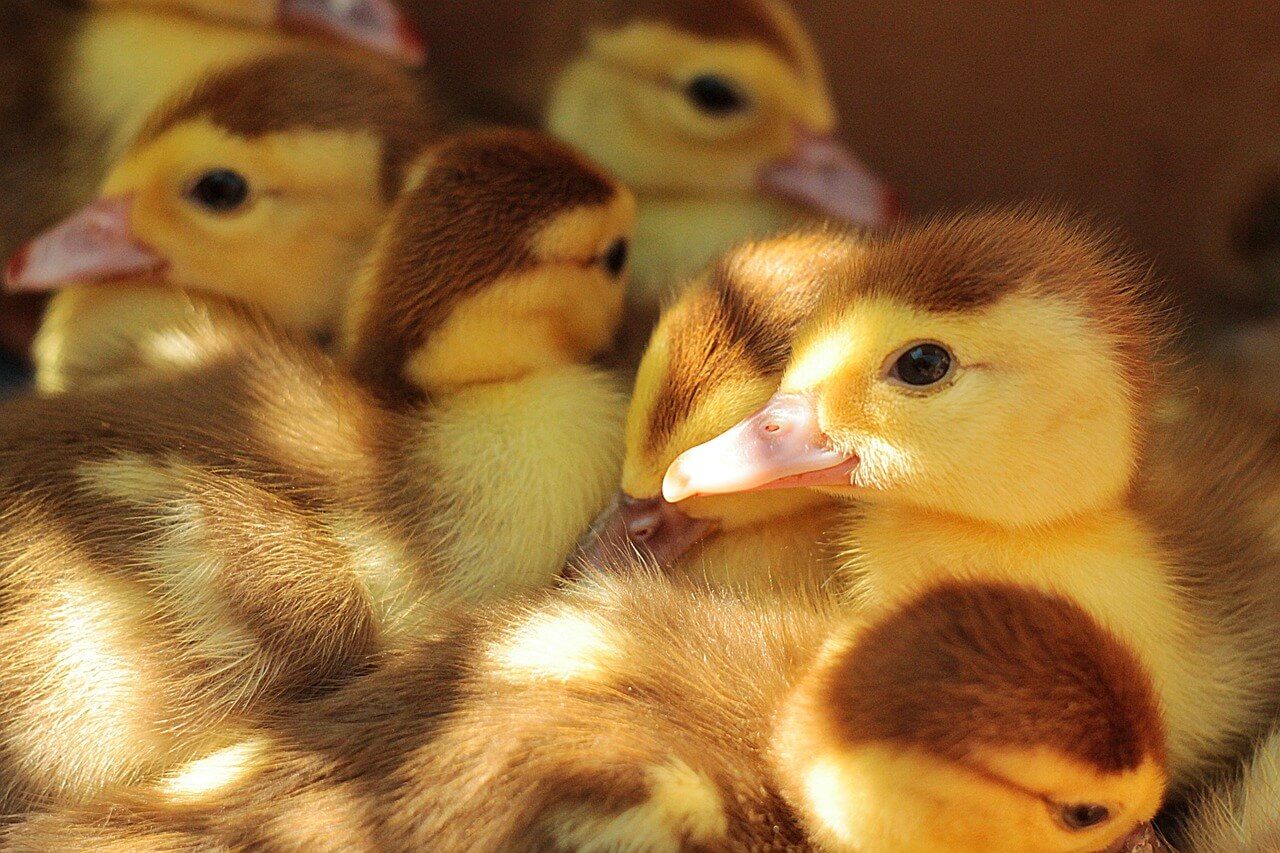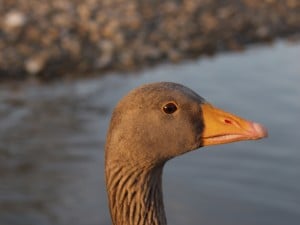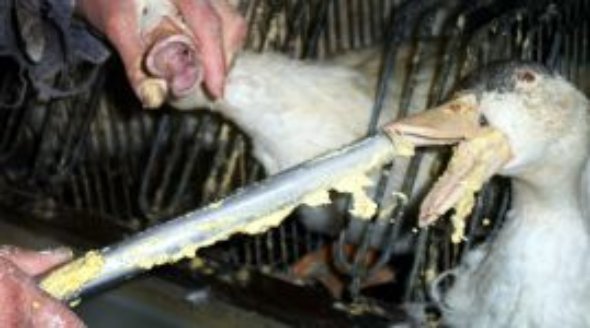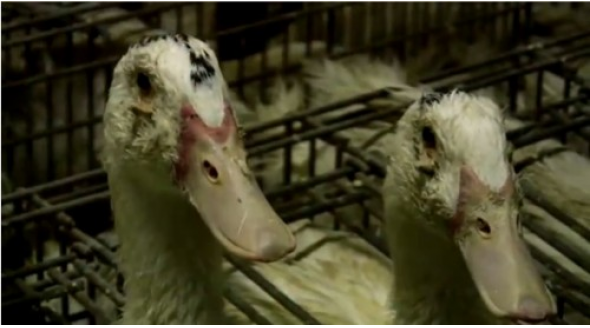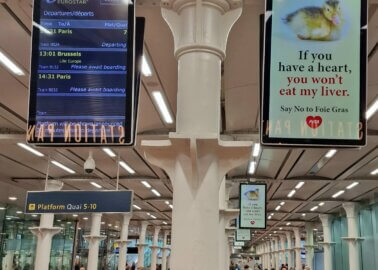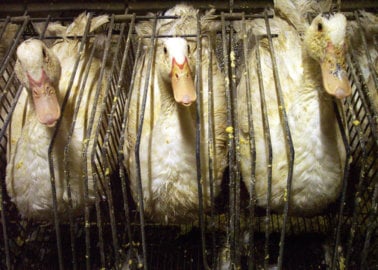For over a decade, PETA has been making great progress in urging huge companies to drop foie gras – the “fatty liver” pâté that’s made by shoving metal pipes down the throats of ducks and geese until their livers become diseased. The production process is so cruel that it’d be illegal in the UK and many other countries.
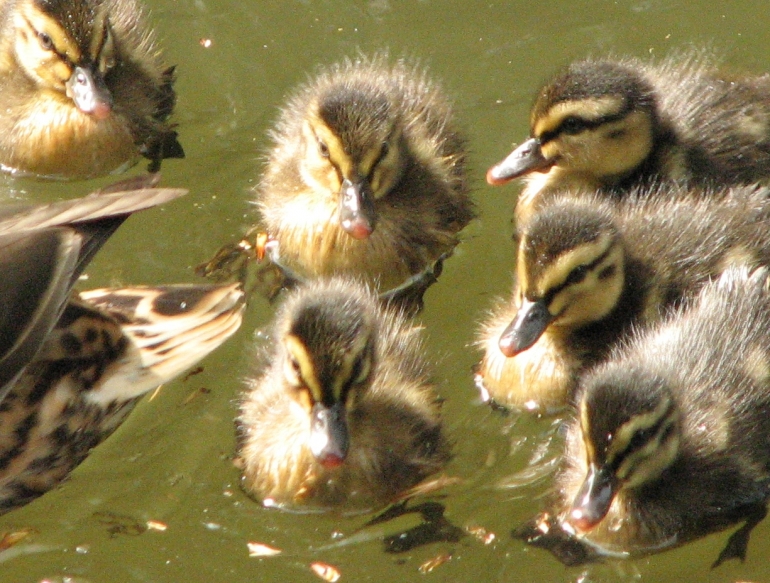
Thanks to dedicated campaigning by PETA and our international affiliates, countless supporters who have joined protests, and phenomenal support from celebrities, dozens upon dozens of businesses have stopped selling the vile product. Now, there’s such a stigma attached to foie gras that a single person speaking out against it can be enough to persuade companies that they’d be better off not selling it.
Here are some campaign highlights from over the years:
Pamela Anderson wrote a letter to Gordon Ramsay on behalf of PETA, urging the celebrity chef to do away with foie gras at his flagship restaurant.
Belgium’s Flemish government announced that it’ll ban the force-feeding of birds for foie gras – as well as fur farming – in Flanders by 1 December 2023.
French chef Alexis Gauthier teamed up with PETA and BOSH! to share his delicious recipe for faux gras – a vegan alternative to foie gras.
Foie gras production was completely banned in the Brussels-Capital region of Belgium. PETA’s exposé of the industry helped show officials and the public the immense cruelty of foie gras production.
A staggering 320,275 people from across Europe spoke out against the force-feeding of birds for foie gras, and alongside other leading animal-protection groups – the Albert Schweitzer Foundation, L214, and Compassion in World Farming – PETA delivered their signatures to EU decision-makers in Brussels.
India became the first country to ban the production, import, and sale of foie gras.
Fortnum & Mason announced that it wouldn’t sell foie gras in its new Dubai store, following the release of an Arabic version of a PETA ad featuring Sir Roger Moore.
BBC show MasterChef vowed never to feature the foodstuff after hearing from PETA and other animal-protection groups.
Amazon UK removed foie gras from its groceries section, thanks to a campaign by Viva! and PETA.
PETA’s then celebrity campaigner, Meg Mathews, got foie gras removed from London restaurant XO after having a word with the manager.
We released shocking eyewitness footage from several foie gras farms represented by the Sarlat Périgord Foie Gras cooperative, which supplied Fortnum & Mason’s foie gras distributor, Georges Bruck. Soon afterwards, the House of Lords took the product off its restaurants’ menus.
The UK’s largest catering company, Compass Group, also pulled foie gras from its menus after talks with PETA and an online campaign urging the company to drop it.
2011 was a year of victories: the Royal Shakespeare Company went foie gras–free, both the All England Lawn Tennis and Croquet Club (home to the Wimbledon tennis championship) and Lord’s cricket ground dropped foie gras from their menus. Ocado also ditched the cruelly obtained foodstuff after PETA appeals.
Following meetings with PETA and a letter from Sir Roger Moore, Harvey Nichols agreed to remove foie gras from its restaurant menu.
The British Academy of Film and Television Arts (BAFTA) removed foie gras from its restaurant and event menus following a PETA appeal, and the Brit Awards pulled the pâté from its menu after complaints from both PETA and singer Leona Lewis.
Oscar winner Kate Winslet narrated an exclusive PETA video featuring eyewitness footage of the cruelty endured by ducks and geese on foie gras farms. Within 24 hours of its release, it had been viewed by more than 230,000 people.
Selfridges removed foie gras from its shelves. The victory was earned in true PETA style, following a number of protests outside the London department store in which PETA supporters wore everything from duck costumes to dinner jackets – one even jumped out of a giant cake!
Sir John Gielgud voices PETA’s first-ever exposé of the cruel foie gras industry.
None of this progress could have been achieved without the support of kind people like you – from everyone who signs our petitions and shares our campaigns on social media to the activists who wear outlandish costumes and protest outside stores.
Awareness of the cruelty involved in foie gras production is growing, and an increasing number of chefs and retailers now refuse to sell it. But we still have work to do – the prolonged suffering of ducks and geese won’t stop until foie gras becomes history.
PETA will keep campaigning against the “torture in a tin” until it’s banished from Britain, and you can help. Here’s what to do if you see foie gras on a menu or in a shop:


